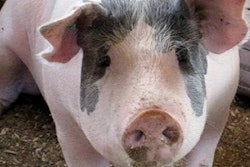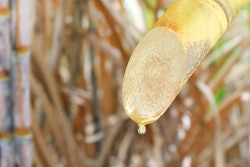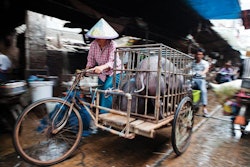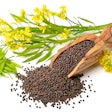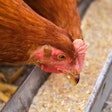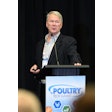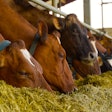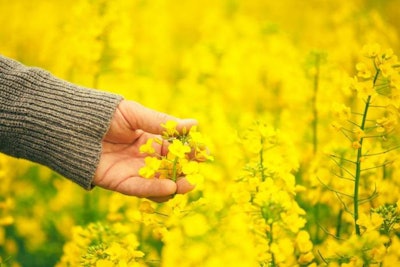
Two livestock feed companies in the United Kingdom have recently identified home-grown rapeseed as a feed ingredient with real potential for meeting the protein needs of the country’s livestock.
For Norvite, the key is setting up a supply of locally grown and organically produced rapeseed meal, while for KW Alternative Feeds, the focus is on increasing the sustainability of supply of protein ingredients, particularly for dairy feeds.
For both firms, the weakness of the British pound relative to other currencies is becoming an important issue as it increases the cost of imported feed ingredients.
Scotland explores growing local organic rapeseed
Animal feed company Norvite is partnering with five arable farmers in northeast Scotland to explore the feasibility of growing organic rapeseed for livestock feeds, reports The Press and Journal.
According to the firm’s technical director, David McClelland, Norvite has to source organic feeds ingredients from as far away as China.
“If we can get local supplies, it will represent a huge opportunity for us and the farmers involved,” he said.
Norvite is a member of the pilot group of an initiative by the Rural Innovation Support Service (RISS), and supported by the Soil Association of Scotland. Members of the group recently visited Sweden, where farmers grow 10,000 hectares (25,000 acres) of organic rapeseed in a climate similar to that of Scotland. Arable farming members of the group are considering different approaches to overcoming the weeding and fertilizer challenges presented by organic growing methods.
The market for organic feed ingredients is “huge” especially from the poultry and pig sectors, said another member of the group, who produces organic eggs and is in the process of converting to organic standards with his cropland.
In recent months, Norvite announced a significant investment in new mobile feed milling equipment to support its poultry and pig-farming customers who use home-grown or locally sourced ingredients in their feeds.
KW sees potential in rapeseed meal for dairy cows
KW Alternative Feeds (KW) — part of AB Agri — highlights the growing demand for sustainable food production in the U.K. as a reason for its interest in rapeseed as a feed ingredient.
One of the leading British supermarket chains, Waitrose, specifies to its milk producers that soybean meal must not be included in the dairy feed, the firm says.
Dietary protein level needs to be maintained or milk yields can drop, yet there are few locally produced alternatives. Soybean production in the U.K. is low, according to KW. Protein quality of peas and beans is inferior to soybeans, and the recent closure of bioenergy plants has cut the supply of British distillers feeds by 420,000 metric tons (mt) per year.
Along with moist feeds and distillery liquids, KW has identified rapeseed expeller meal as good alternatives to imported soybean. The firm says rumen-protected rapeseed expeller can be used as a direct substitute for soybean meal, increasing milk yields and reducing costs.
The firm says its NovaPro heat-treated rapeseed product contains the same amount of digestible undegraded protein (DUP) as soybean meal, but at a 15% lower cost. DUP passes through the rumen without being degraded by the microbes, and is available for absorption from the cow’s lower digestive tract.



